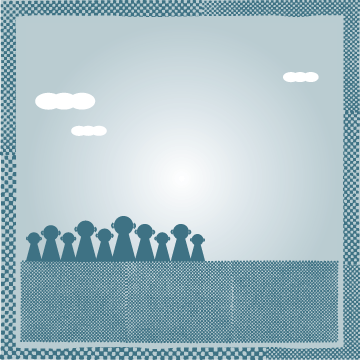Filmmaker David Lynch explains how to catch big ideas (Lecture)
From KUOW | Part of the Speaker's Forum series | 53:59
David Lynch explains how he gets ideas for his often disturbing films from a feeling of inner bliss.
- Playing
- Filmmaker David Lynch explains how to catch big ...
- From
- KUOW
 David Lynch is out to catch big ideas. He has been making movies for 40 years. He says transcendental meditation is at the root of his creative process.
David Lynch spoke at Town Hall Seattle on January 16, 2007. The event was sponsored by the Elliot Bay Book Company.
Also this hour, David Lynch speaks with KUOW's Ross Reynolds.
Fits a 1 hour program with a 5 min news hole
David Lynch is out to catch big ideas. He has been making movies for 40 years. He says transcendental meditation is at the root of his creative process.
David Lynch spoke at Town Hall Seattle on January 16, 2007. The event was sponsored by the Elliot Bay Book Company.
Also this hour, David Lynch speaks with KUOW's Ross Reynolds.
Fits a 1 hour program with a 5 min news hole
Our Human Potential
From The Tibet Connection | Part of the Open Mind series | 06:52
A contemplative nun who spent 12 years meditating in a cave high in the Himalayas offers her views on human potential.
- Playing
- Our Human Potential
- From
- The Tibet Connection
 In this installment of the Open Mind series, Jetsunma Tenzin Palmo, a contemplative Buddhist nun from England who spent 12 years meditating in a cave high in the Himalayas offers her views on human potential in this Q&A. Some highlights:
In this installment of the Open Mind series, Jetsunma Tenzin Palmo, a contemplative Buddhist nun from England who spent 12 years meditating in a cave high in the Himalayas offers her views on human potential in this Q&A. Some highlights:
"Our human potential is to transform ourselves from ordinary, unenlightened, conditioned human beings into perfect embodiments of wisdom and compassion."
"We see how much everyone wants to be happy, and yet because of our ignorance — our lack of understanding — we just put so much effort into making ourselves and everybody else miserable! … We mess everything up because we don't see things as they truly are."
"Meditation is all about trying to recognize that level of mind which is our true nature, and is very different from our ordinary, conceptual thinking."
Jetsunma Tenzin Palmo is the author of several books and is biographied in the book Cave in the Snow by Australian journalist Vicki Mackenzie.
What is meditation, really?
From The Tibet Connection | Part of the Open Mind series | 06:58
A former Buddhist monk debunks some meditation myths.
- Playing
- What is meditation, really?
- From
- The Tibet Connection
 "Meditation" is a word that brings all sorts of lofty (or airy-fairy) ideas to mind, but in fact it's a skill just like any other: To get good at it, you have to practice, practice, practice.
"Meditation" is a word that brings all sorts of lofty (or airy-fairy) ideas to mind, but in fact it's a skill just like any other: To get good at it, you have to practice, practice, practice.
James Neal, an American, was a Buddhist monk for 15 years and now teaches meditation in India, Europe and elsewhere. He spoke with producer Peter Aronson in Dharamsala, India, where he now lives.
This is not an instruction session, but a nuts-and-bolts nuts-and-bolts of meditation in a Q&A on meditation and some common myths.
- What is meditation?
- Do you think there's always a "spiritual" aspect to meditation, or is it merely psychological?
- What are "meditational experiences?" Are they frightening?
- What do people find in the depths of their mind?
- How can people who lead busy lives reap benefits from meditation?
"We see that our mind is totally out of control."
"Actually what meditation is not about is about being all happy and 'spiritual.' It's about being aware of what's going on in our minds, and that can be a little frightening and not seemingly 'spiritual' at certain times. But that's the work that has to be done."
"Happiness comes from the mind, and it doesn't come from outside."
